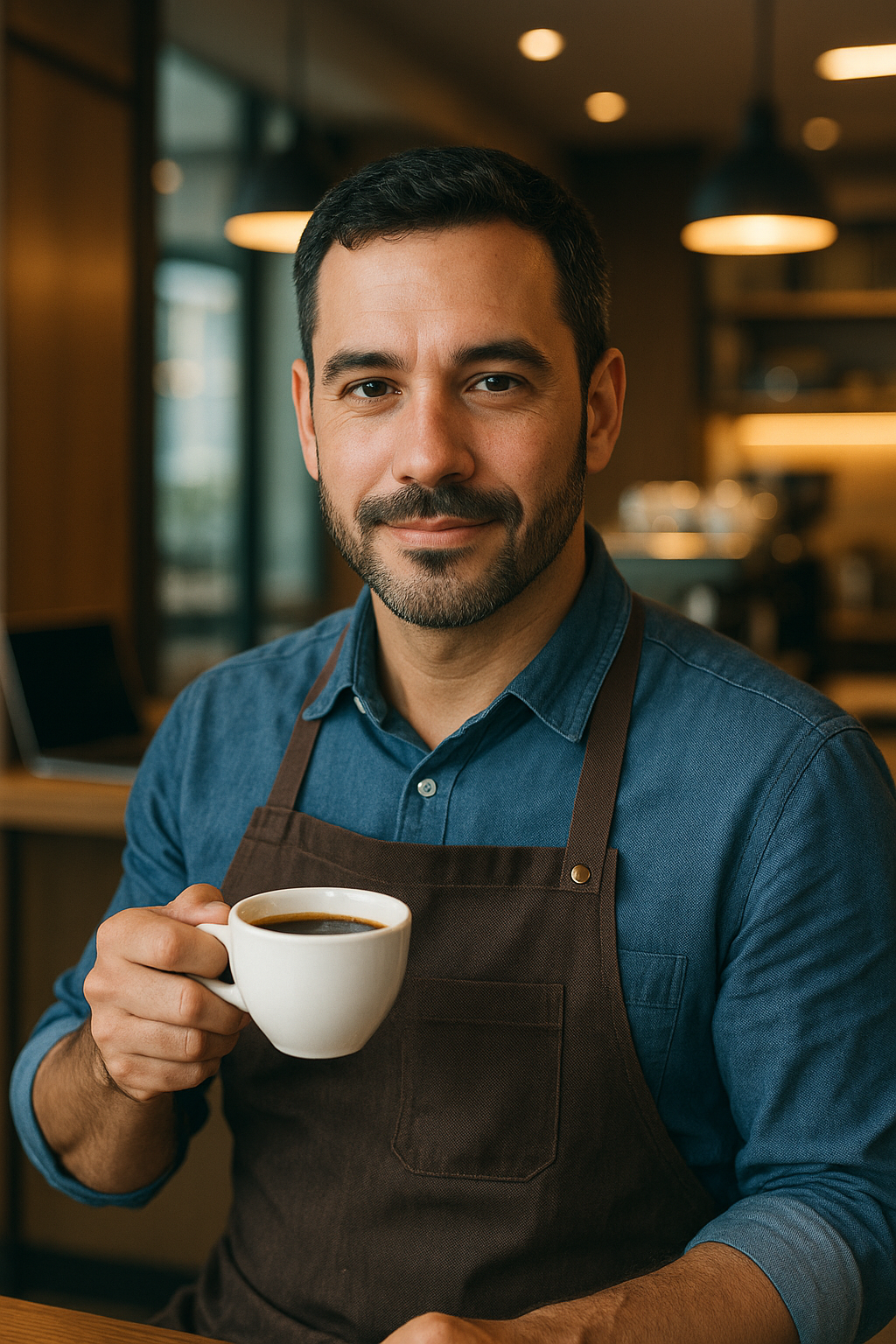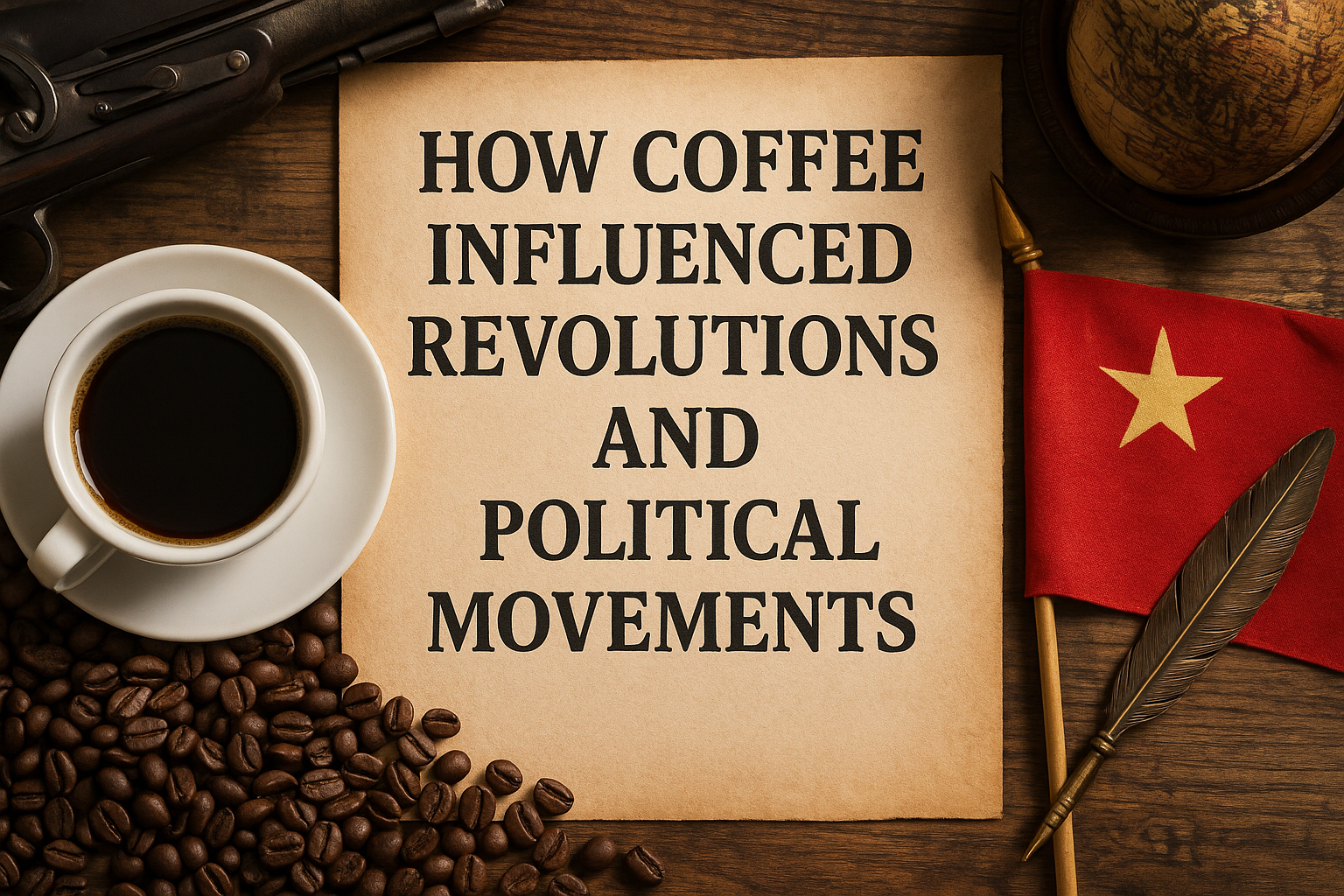Coffee is known for its energizing effect and comforting presence in our daily routines, but historically, it has played a much deeper role.
Throughout history, coffee has acted as a catalyst for revolutions, reform, and radical thought. Coffeehouses weren’t just places to sip a drink—they were hubs of political discussion, dissent, and rebellion.
In this article, we explore how coffee shaped the course of social and political change across different cultures and centuries.
The Rise of Coffeehouses: Centers of Thought and Rebellion
By the 17th century, coffeehouses had emerged in major cities across the Ottoman Empire, Europe, and later in colonial America. Unlike taverns or inns, which were often noisy and alcohol-fueled, coffeehouses were spaces for conversation, contemplation, and critical thinking.
In cities like Cairo, Constantinople, London, and Paris, the coffeehouse became a sanctuary for merchants, poets, philosophers, politicians, and revolutionaries alike. Coffee fueled intellectual energy while the open space of the café gave people room to speak and share ideas.
Ottoman Empire: The First Coffee Bans
Ironically, some of the earliest efforts to ban coffee came from leaders who recognized its power to stimulate not just the mind but also political unrest.
In the 1500s, Sultan Murad IV of the Ottoman Empire banned coffee, fearing that the gatherings in coffeehouses encouraged dissent and opposition. Some of these establishments were reportedly centers of plotting and sedition. Despite the severe punishments—including death by drowning for repeat offenders—coffee remained too popular to suppress. Even religious scholars debated whether coffee consumption was haram (forbidden), but public demand eventually overwhelmed state control.
The Ottoman coffeehouse would go on to inspire similar spaces in Europe, sparking a chain reaction that would reshape political dialogue.
England: Penny Universities and Political Debate
In 17th-century England, coffeehouses were nicknamed “penny universities” because for the price of a penny, anyone could buy a cup of coffee and join in the vibrant conversations on politics, business, philosophy, and science.
These coffeehouses were radically democratic for their time. Class and title mattered less than the ability to contribute meaningfully to a conversation. Many notable institutions were born in these venues:
- Lloyd’s of London, the insurance giant, began as a coffeehouse where merchants and shipowners exchanged news and made deals.
- The London Stock Exchange has its origins in Jonathan’s Coffee House, where brokers gathered to trade stocks and shares.
However, the open exchange of ideas made the monarchy nervous. In 1675, King Charles II attempted to ban coffeehouses, claiming they spread false rumors and sedition. The backlash was swift and intense, and the ban was revoked within days. It was clear that the English public was not willing to give up their coffee—and their space for free speech.
France: Brewing the French Revolution
In Paris, coffeehouses were also places where revolutionary thought simmered. The famous Café Procope, established in 1686, attracted the greatest minds of the Enlightenment. Philosophers like Voltaire, Rousseau, and Diderot were regulars, discussing radical ideas about liberty, secularism, and government reform over countless cups of coffee.
As revolutionary fervor gripped France in the late 18th century, cafés became staging grounds for action. The iconic Storming of the Bastille, which marked the beginning of the French Revolution, was reportedly planned in a café. Revolutionary newspapers were written, distributed, and debated within these walls.
Coffee didn’t just energize these thinkers—it brought them together.
America: Coffee as a Symbol of Independence
In the American colonies, tea had long been the drink of choice, especially among the British elite. But as anti-British sentiment grew in the years leading up to the American Revolution, tea became a symbol of tyranny.
The Boston Tea Party in 1773, where American colonists dumped British tea into Boston Harbor in protest of the Tea Act, marked a turning point. As a political statement, many Americans began drinking coffee instead of tea, and it quickly became the patriotic choice.
Founding Fathers like Thomas Jefferson and John Adams were advocates of coffee. In fact, Jefferson once called coffee “the favorite drink of the civilized world.” Revolutionary newspapers, committee meetings, and political discussions were held over coffee in colonial coffeehouses and taverns.
Latin America: Coffee, Colonialism, and Resistance
In Latin America, coffee production has long been tied to colonialism, exploitation, and economic dependence. Yet, coffee also became a symbol of national identity and, later, resistance.
In countries like Brazil, Colombia, and El Salvador, coffee was a major export controlled by elites, but over time, movements emerged to reclaim the industry for local workers and indigenous communities. Coffee cooperatives became a means of economic empowerment and political solidarity.
In the 20th century, leftist guerrilla groups in Central America often relied on coffee-growing regions for support. The economic and environmental implications of coffee farming were, and still are, deeply political.
Ethiopia and the Birthplace of Coffee
Returning to coffee’s birthplace, Ethiopia, it’s worth noting that coffee has always held cultural and spiritual importance. The Ethiopian coffee ceremony is more than a daily ritual—it’s a cultural event that reinforces community and tradition.
In modern times, Ethiopia has also used coffee diplomacy to shape trade agreements and assert its position as a leading coffee producer. By reclaiming the narrative around coffee’s origin and branding, Ethiopia has sought to protect its farmers and heritage on the global stage.
The Role of Coffee in 20th Century Protests
Coffee culture has remained deeply political even in the modern era. In 20th-century America, diners and cafés became important spaces during the Civil Rights Movement. Black activists held meetings in cafés and staged sit-ins at whites-only establishments, using these public spaces to demand equality and justice.
In 1960, four Black students staged a sit-in at a segregated lunch counter in Greensboro, North Carolina—an event that sparked a nationwide wave of protests and became a pivotal moment in the civil rights struggle.
In more recent years, coffee shops have often served as meeting points for climate activism, labor organization, and social justice groups. The resurgence of independent cafés has revived their role as spaces for open, often radical, dialogue.
Coffee as a Modern Political Tool
Today, coffee continues to influence politics and global policy in new ways:
- Fair trade movements aim to ensure ethical treatment of coffee farmers and laborers.
- Climate change is threatening coffee-growing regions, prompting international policy discussions.
- Consumer activism is pressuring big brands to adopt more sustainable and equitable practices.
- Baristas and café workers around the world are organizing for better wages, benefits, and working conditions.
Even your choice of coffee brand or café can be a political act—supporting fair wages, environmental sustainability, or local business.
Final Thoughts: A Revolutionary Brew
Throughout history, coffee has been much more than a beverage. It has been a stimulant of minds, a facilitator of revolution, and a symbol of resistance. From the smoky qahveh khaneh of Istanbul to the bustling cafés of Enlightenment Paris, from Boston’s anti-tea movement to the civil rights cafés of the 1960s, coffee has consistently brewed change.
The next time you sit down with a cup, remember: you’re not just sipping a hot drink—you’re participating in a centuries-old tradition of thought, defiance, and transformation.

Marcelo Oliveira is a coffee enthusiast and content creator specializing in barista skills, brewing methods, equipment reviews, coffee-related health insights, and fascinating curiosities from the coffee world. With a deep passion for every step of the brewing process, he turns technical knowledge into accessible and engaging content for both beginners and seasoned coffee lovers. Marcelo’s goal is to help readers appreciate the full experience of coffee—from bean to cup.
